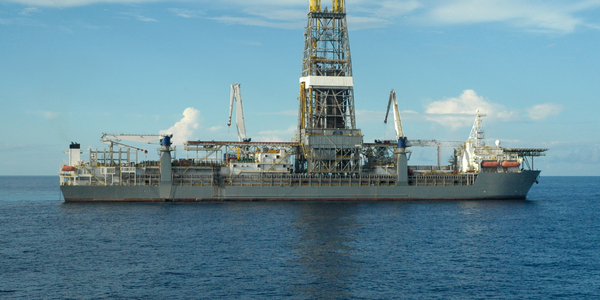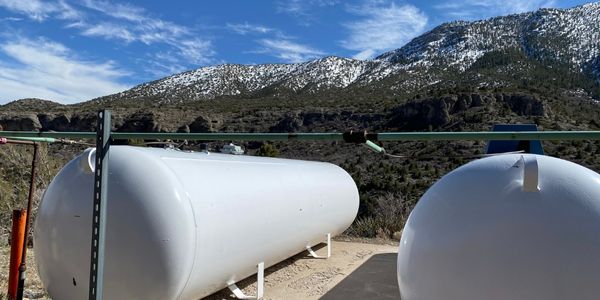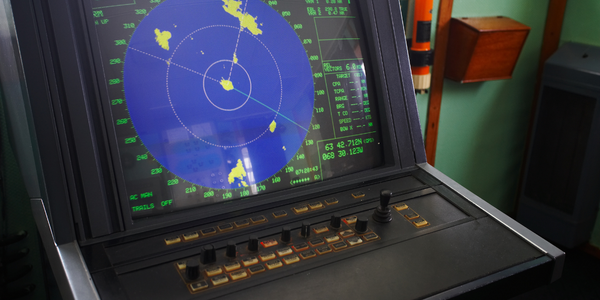Technology Category
- Cybersecurity & Privacy - Network Security
- Networks & Connectivity - Gateways
Applicable Industries
- Marine & Shipping
- National Security & Defense
Applicable Functions
- Product Research & Development
Use Cases
- Inventory Management
- Tamper Detection
Services
- Cybersecurity Services
About The Customer
RMK Marine is a leading global designer and builder of superyachts. The company is renowned for its high-quality naval and commercial ships, as well as superyachts. Its employees apply advanced technology, complex designs, and integrated engineering solutions to meet stringent client requirements. Like most organizations, RMK Marine relies on its infrastructure to support its essential business operations, from shipping design to business transactions with its global customers. Security is critical, because the firm's engineers and designers are constantly working with sensitive proprietary data.
The Challenge
RMK Marine, a global designer and builder of superyachts, faced the challenge of protecting its intellectual property and customer transactions. The company's infrastructure supports essential business operations, from shipping design to business transactions with its global customers. Security is critical as the firm's engineers and designers constantly work with sensitive proprietary data. The company also needed to securely support a remote workforce during the global pandemic. New threats are emerging all the time, and RMK Marine also focuses on protecting its environment from viruses, ransomware, and other threats that could disrupt operations, to keep its business running without interruption.
The Solution
To gain the advanced protection it needed and consolidate its varied security products, RMK Marine deployed Check Point Next Generation Security Gateways to its data center. This provided robust threat protection across the 60 servers and 150 clients in its data center, including design servers, file servers, and workstations. For additional protection for email and Internet traffic downloads, the company deployed the Check Point Sandblast Appliance. Its Threat Emulation prevents infections from undiscovered exploits, zero-day, and targeted attacks. The solution quickly inspects files and runs them in a virtual sandbox to discover malicious behavior, preventing it from entering the network. The solution is managed using the R80 SmartConsole which provides complete administrative control via a single pane of glass.
Operational Impact
Quantitative Benefit

Case Study missing?
Start adding your own!
Register with your work email and create a new case study profile for your business.
Related Case Studies.

Case Study
Drill ship power challenge: hybrid solution solves distribution issues
Aspin Kemp & Associates (AKA), a manufacturer of electrical power and control systems headquartered in Montague, PEI, encountered one with its hybrid power initiative, the first hybrid drill floor destined for installation on ultra-deepwater drill ships operated by Transocean, Swiss offshore drilling contractors. Since on-site modification was impossible and scrap recycling of any modifications was unacceptable, the enclosures had to arrive ready-to-install.

Case Study
Data Capture for Afghanistan Forces
Electronic equipments on the field of Afghanistan provided information on the status of the vehicle and to identify potential threats surrounding it to the British Force. The monitoring and interpretation of this data requires robust and sophisticated digitization for data capture and communication.

Case Study
Ensures Tanker Safety and Emissions Compliance
Storage tanks are irregular in shape and a certain amount of mathematical modelling is required to get an accurate representation of volume and, more importantly, the weight of material in each tank. In addition, countries have different emission regulations, so the ships position needed to be accurately known in order to geotag emission data.

Case Study
Real-time Networked Sonar System for Ships
A multinational, knowledge-based corporation that delivers marine electronics solutions is utilizing industrial Ethernet technology to help ensure that operations at sea are dependable and optimal. Based in Europe, the company has nearly 4000 employees working in 20 countries around the world, and produces high-tech systems for offshore oil and gas operations, merchant marine systems, and various applications for the defense and aerospace industries. The company produces products and systems used by merchant vessels and offshore installations for positioning, navigation, automation, as well as for surveying and monitoring the seabed, and for fishing vessels and fi sheries research. As one of the major suppliers of high quality marine electronics in the world, their products include chart plotters for yachts, triple redundant dynamic positioning systems for oil drilling rigs, and sonar and instrument systems for scientifi c research vessels. Products used for marine applications must be rugged enough to endure the corrosive effects of salt water, and be able to withstand excessive amounts of vibration and shock. For this reason, the company only uses DNV and GL certified products and components to ensure that their systems can meet the high standards required by the maritime industry.
Case Study
Enhancing Security and Compliance in Remitly's Global Money Transfer Service with Fastly
Remitly, an online remittance service, was faced with the challenge of securing its proprietary global transfer network. The company needed a security solution that could meet PCI requirements and protect customers' sensitive transactions through its mobile application. The solution had to be capable of defending against new and emerging attack types without impacting performance. Remitly also had to deal with irregular traffic patterns, such as a sudden spike in account transfers from a small network segment on the Pacific coastline of South America. The company needed to determine in real time whether such traffic indicated an attack or valid requests. A traditional web application firewall (WAF) would not be able to distinguish this traffic, potentially leading to customer frustration if the IP was blacklisted.

Case Study
Fleet Management Connectivity Solution for Marzam
Marzam, in order to ensure the best service, invested 3 million dollars in the construction of 2 fuel oil tanks with 40k gallons and 10k gallons capacity each, located in Manta, Ecuador. The customer needs to keep fleet operations going with fuel available at all times in order to guarantee quality of service. KEY ELEMENTS FOR THE CUSTOMER: Real-time level monitoring: Tank infrastructure remote level monitoring. Configure alerts and notifications when reaching critical values to avoid the need for emergency refills and optimize supply schedules. Real-time consumption monitoring: The customer needed an easy way to monitor in real-time accurate values of consumption.







